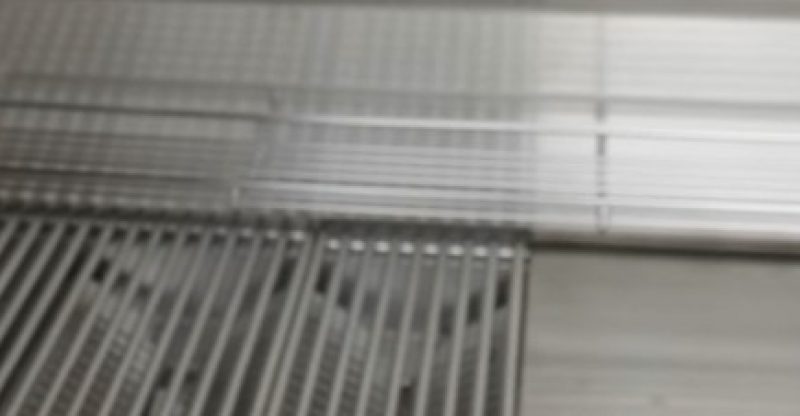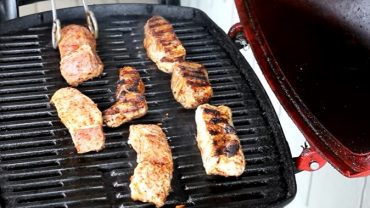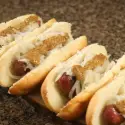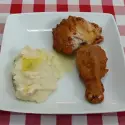When Grilling Do You Close The Lid
When Grilling Do You Close The Lid
Should You Grill with the Lid Open or Closed? If perfecting your grilled dishes has always seemed like a daunting task, especially when it comes to understanding the nuances of using the grill lid, then this guide is precisely what you need.
It may appear like understanding when to keep the lid open or closed when cooking on the grill takes a master’s degree, but it’s not that difficult. Several elements will influence how you cook your food on the grill, including whether you should keep the grill cover up or down.
Grilling steaks should be straightforward, but do you always close the lid when you’re done? The solution is a little more complicated. Yes and no, in a nutshell. It all relies on several factors.
The meat you choose, how you prepare it, and the grill style you use are the most important considerations. A combination of these three options will aid you in deciding whether to close or open the lid during the cooking process.
Selection Of Meat To Close The Lid
When grilling, the sort of meat you choose will determine whether you need to keep the lid closed or open. The grill will not generate as much heat if the lid is left open during the grilling process.
However, if the lid is closed, the grill will gradually heat up, and the inside temperatures will rise over time. You’ll want to keep the lid open for cooking thinner steaks, pork chops, boneless chicken parts, shrimp, and shellfish.
Keep the lid covered while cooking bigger portions of steak, entire birds, roasts, and anything on the bone. This will help the grill heat up faster and more evenly, allowing the thicker, meatier slices to cook faster and more evenly.
Applications For Preparation to Close The Lid
The way you cook the steak will also influence the outcome. Fats and oils will fall onto the heat source throughout the cooking process, causing flare-ups and smoke. This will provide a smokey taste to the meat while also speeding up the cooking process and resulting in char marks. When the lid is closed, the flames are smoldering, which helps control the amount of flare-up. More air would rush in if the lid was open, allowing for more flare-ups than usual. Checking the fat level of the meat is another technique to avoid flare-ups.
Flare-ups will be less common in leaner cuts, whereas they will be more common in fattier cuts. Furthermore, if you marinate the meat in oil, butter, or other fats, these will drip onto the heat source, causing further flare-ups.
Grilling With The Lid Open Or Closed
According to some, you should never cook with the lid open on your grill. Others say you should never open the lid of your grill. Which is correct?
You may get a nice char on the outside of your meat without overcooking it on a gas or charcoal grill with the lid off. If the grill is closed, the meat cooks more evenly through to the center. The heat is trapped when the lid is down, so it can do its magic on the food. Food will be more evenly cooked thanks to convection, or the circulation of hot air.
Closed Lid When Grilling
At the point when you’re barbecuing, you focus on the food with a hard, scorched outside and a soggy, delicate inside. You need that outcome whether you’re cooking a slender flank steak or a thick section of ribeye. You need it when you barbecue wispy asparagus, and when you barbecue generous potatoes. But, the goal is something similar, the excursion is distinctive for dainty food sources than thick ones.
At the point when you close the top to the barbecue, you’re making convection. That is, the hot air coming from the hotness source (gas or charcoal), caught by the cover and incapable of getting away, moves around in the chamber you have made. In this manner, the shut top aids the inside of the meat to cook through, similar as a broiler does.
Here are a few things you can do with a closed lid grill:
- Pizza on a baking stone
- Anything heated (pies, disintegrates, and so forth)
- Preheating the barbecue
- Aberrant cooking
- Cooking an entire chicken
- Smoking something with a smoke box
- Barbecuing enormous bits of meat like a turkey, leg of sheep, and so on
- Food prepared on a rotisserie
Grilling Styles
Whether the lid should stay open or closed when cooking depends on the grill you use, in the end, whether you use a propane barbecue, an electric grill, or a natural gas grill, you should have no issues.
No matter what, you’ll be able to cook with the lid open or closed. If you’re using a charcoal grill, though, you’ll want to keep the lid closed for the most part.
Charcoal grills are meant to build up heat, and when you open the grill, you remove that heat, which means your steaks will take longer to cook. It will help speed up the burning of charcoal by increasing airflow. As a result, you’ll be spending more money on charcoal.
A Closed Lid Indicates Convection
We all strive for a crispy, slightly burnt surface and a juicy, soft inside while grilling. We want the same outcome, whether we’re cooking a tiny flank steak or a huge chunk of ribeye. When we grill airy asparagus and substantial potatoes, we desire it. Even though the goal is the same, the trip for thin foods differs from that of thick foods.
Convection is created when the lid of the grill is closed. That is, hot air from the heat source (gas or charcoal) flows around in the chamber you’ve made since it is confined by the lid and unable to exit. As a result, the closed lid aids in the thorough cooking of the meat’s interior.
Conclusion
So, while you’re grilling steaks, do you close the lid? Yes, if you want to cook your steak faster, with fewer flare-ups, and to use charcoal. The lid should only be closed when cooking big chunks of meat that require a higher temperature.








